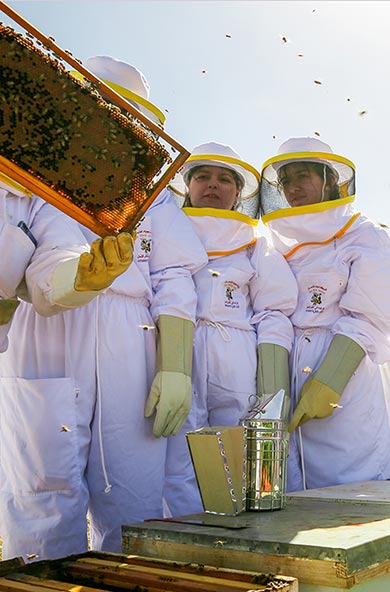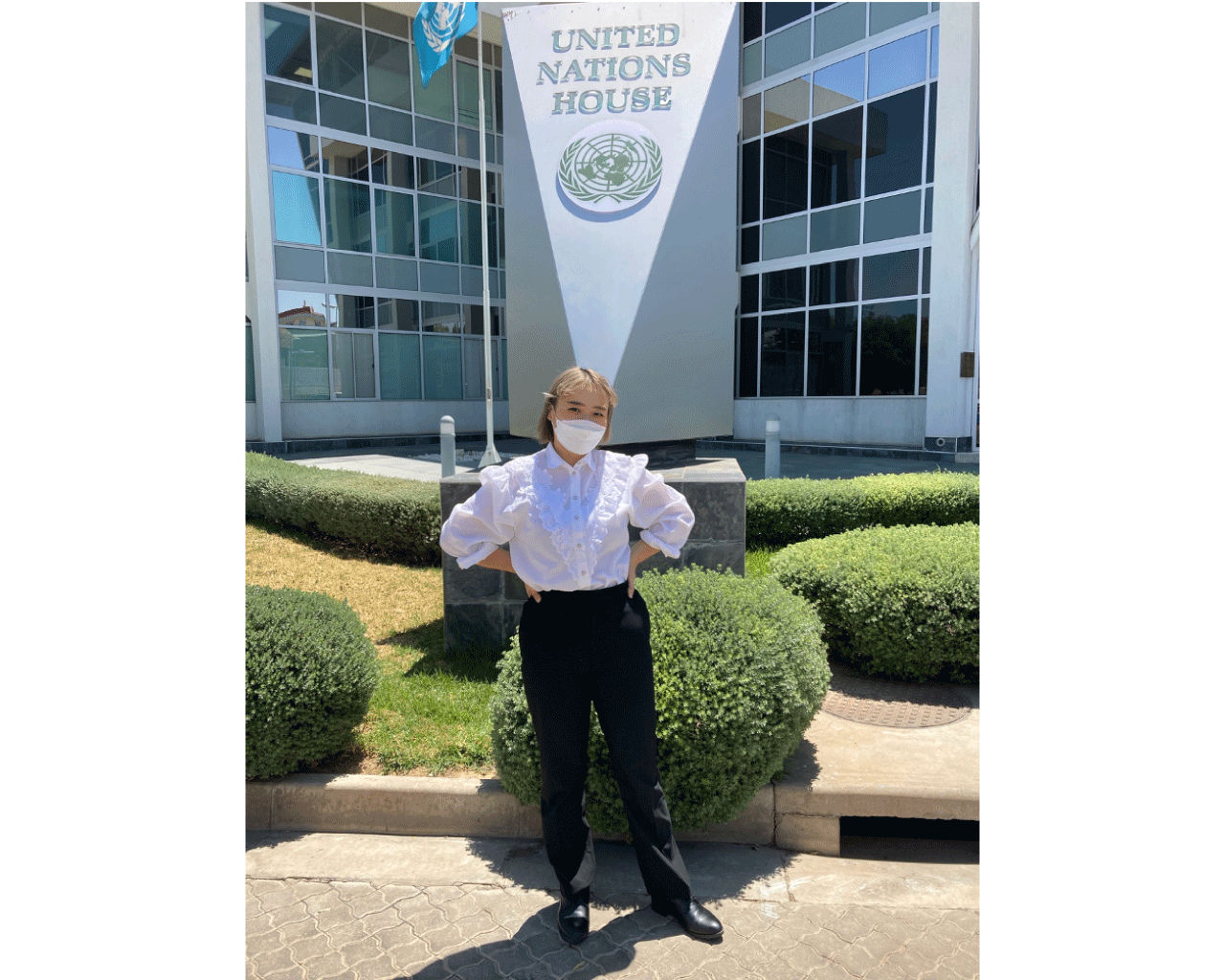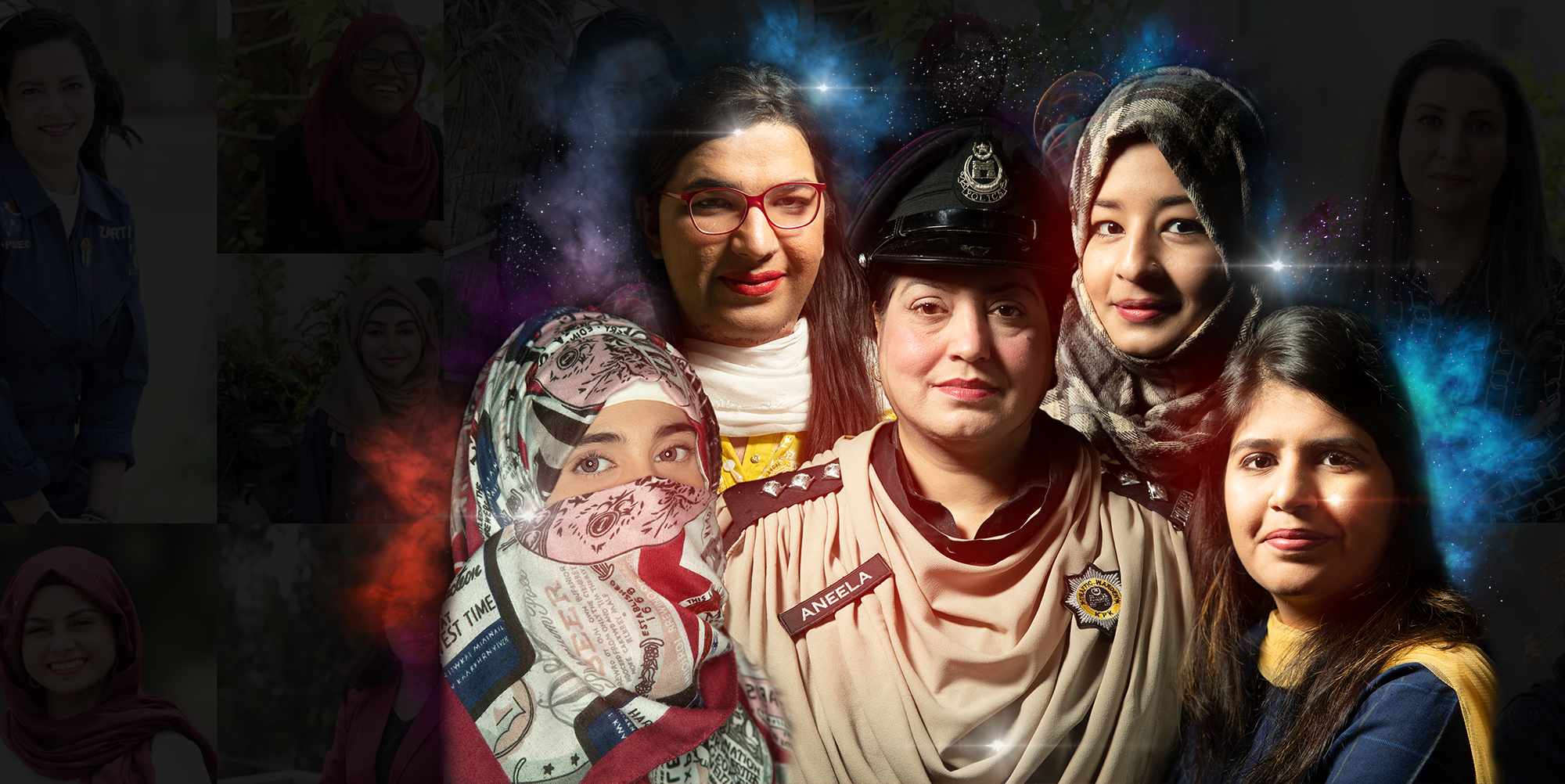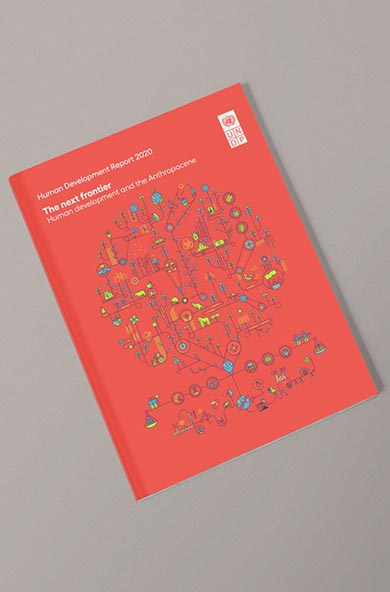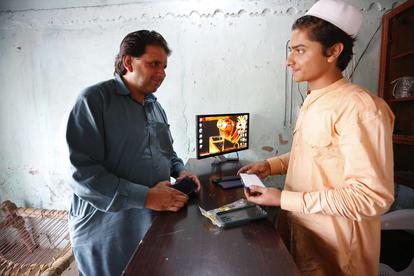by Tauseef Ahmad, Hoor Malik, Shahzad Ahmad, and Hamna Umar Hashmi

In the quiet suburb of Nasir Kalay, Nowshera district, lives 36-year-old Nazo, a mother of six. Married in 2006 to a daily wage labourer, financial hardship defined much of Nazo’s early married life. Her husband's limited income barely met their basic needs, and as their family grew, so did the strain.
Financial troubles mounted, and frequent arguments began to threaten the stability of their marriage. When Nazo learned her husband was considering ending their marriage, it broke her.
“I felt scared and lost, not knowing what to do. My in-laws were upset, but deep down, I knew I had to fight to save my family, to save my marriage.”
Faced with the possibility of her family falling apart, Nazo knew she had to be financially independent. With a sewing machine and basic stitching training provided by a local NGO, she began stitching clothes from home, earning just Rs. 300 per suit. Despite the weight of societal expectations and disapproval from her in-laws, her determination saw her through.
Over time, Nazo’s work gained recognition, and her income grew to Rs. 15,000 per month. As she became more financially independent, the dynamics at home also started to change. Managing household expenses became easier and the relationship with her husband improved.
"When I started earning, something changed. The hopelessness faded. My husband looked at me differently, and I knew I was finally enough for my family."
However, the family’s struggles were far from over. Nazo dreamed of providing her children with a quality education, but private school fees seemed out of reach. Her house, ravaged by the torrential rains and floods of 2022, also needed extensive repairing.

In May 2024, Nazo learned about a village bank in Nowshera, established by the United Nations Development Programme (UNDP) and Sarhad Rural Support Programme (SRSP) with support from USAID, that offered interest-free microfinance loans to women-led enterprises. The same month, she applied for the loan and received an interest-free amount of PKR 50,000, repayable in ten easy instalments.
With this loan, Nazo launched two home-based ventures. She set up a cosmetics shop, offering basic products tailored to local women’s needs. Additionally, she purchased a desktop computer and set aside a room in her house to provide digital content such as dramas, movies, and songs to smartphone users in her village, where internet access is limited.
Unfamiliar with technology and mindful that most of her customers were men, she decided to involve her 17-year-old son, a high school student, to assist her. This decision not only helped her overcome the challenges of her conservative surroundings but also introduced her son to entrepreneurship.
The ventures proved successful, and Nazo soon expanded her offerings to include mobile phone accessories. Her growing income allowed her to enroll her children in private schools, renovate her home, and gain a stronger voice in household decisions.
Nazo is paying the loan instalments on time and dreams of expanding her business to include items like blankets and dowry essentials, offering them instalments to make them accessible for families in need. She also aspires to establish a vocational training center for young girls, teaching them stitching and life skills to achieve financial independence.
"When my son started earning on his own, it felt like a dream come true. He’s now studying and working—it’s a balance I never thought we’d achieve. I will always be grateful to USAID, UNDP and SRSP for giving me the chance to rewrite my story. Without their support, I would never have known the strength I carry within me."

Project Background:
UNDP, under USAID-funded FATA Economic Revitalization Programme (FERP), has established two village banks in the flood-affected districts of Nowshera and Swat in the Khyber Pakhtunkhwa (KP) province. This locally developed banking model, with seed money from SRSP, has empowered nearly 2,000 women out of a target of 3,000 in the two districts, demonstrating the transformative power of localized financial solutions.
The FERP programme has been instrumental in broadening access to finance for Micro-, Small- and Medium-sized Enterprises through financial assistance, workforce development, and business support packages, while supporting the KP Government in developing gender-responsive investment promotion strategies to enhance SME access to credit.

 Locations
Locations


